
On 9 Dec 1906, Grace Hopper was born, who as a rear Navy Admiral pioneered the development of computer technology.Today's book pick is: Grace Hopper: Admiral of the Cyber Sea, by Kathleen Broome Williams, who describes one of the most important women in the history of computers. You probably know relatively little of this woman's accomplishments, which is a pity, because they were so significant. A mathematician by training who became a computer scientist, the eccentric and outspoken Hopper helped propel the Navy into the computer age. Yet she was feisty and impatient with bureaucracy which is apparent from a clock that ran backwards and a Jolly Roger flag on her desk. She was the first woman restricted line officer to reach flag rank and, at the age of seventy-nine, the oldest serving officer in the Navy. She also was a superb publicist for the Navy, appearing frequently on radio and television and quoted regularly in newspapers and magazines. This biography not only illuminates Hopper's pioneering accomplishments in a field that came to be dominated by men, but provides a fascinating overview of computing from its beginnings in World War II to the late 1980s.
It is available from Amazon, typically about New from $89.49. Used from $5.99. (As of earlier time of writing - subject to change.)
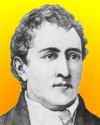 | Neue Phaenomena zu erklären, dieses macht meine Sorgen aus, und wie froh ist der Forscher, wenn er das so fleissig Gesuche findet, eine Ergötzung wobei das Herz lacht. To explain new phenomena, that is my task; and how happy is the scientist when he finds what he so diligently sought, a pleasure that gladdens the heart. |
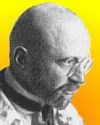 | The field of scientific abstraction encompasses independent kingdoms of ideas and of experiments and within these, rulers whose fame outlasts the centuries. But they are not the only kings in science. He also is a king who guides the spirit of his contemporaries by knowledge and creative work, by teaching and research in the field of applied science, and who conquers for science provinces which have only been raided by craftsmen. |
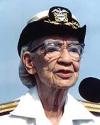 | Humans are allergic to change. They love to say, “We’ve always done it this way.” I try to fight that. That’s why I have a clock on my wall that runs counter-clockwise. |
| Before you look at today's web page, see if you can answer some of these questions about the events that happened on this day. Some of the names are very familiar. Others will likely stump you. Tickle your curiosity with these questions, then check your answers on today's web page. | |
| Births | |
 | Grace Murray Hopper, born 9 Dec 1906, was an American mathematician and a pioneer in computer technology, helping to devise Univac I, and military applications for a new computer language. It is said that after finding a dead moth in the wire circuitry of an early computer, she coined the term “bug” to refer to unexplained computer failures. Which computer programming language did she help develop for military applications? |
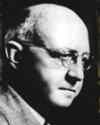 | Clarence Birdseye, born 9 Dec 1886, was the inventor of the deep freezing food method and co-founder of General Foods Corp. His invention was inspired while on Arctic trips as a field naturalist for the United States government. With which food did he begin his commercial processing? |
| Deaths | |
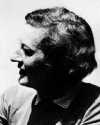 | An English-born paleoanthropologist (1913-1996) made several of the most important fossil finds, and has been called “the woman who found our ancestors.” Her work in East Africa shed new light on human evolution. She made the spectacular find of three trails of fossilised hominid footprints 3.6 million years old, showing man's ancestors were walking upright at a much earlier period than previously believed. Who was this anthropologist? |
 | An English amateur astronomer (1923-2012) was a broadcaster and prolific writer. For a half-century, he was the enthusiastic and knowledgeable presenter of the BBC TV programme The Sky at Night, which he began in 1957. The programme holds the record as the world's longest-running television series by its original presenter. Who was this amateur astronomer? |
| Events | |
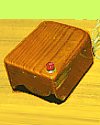 | On 9 Dec 1968, the first demonstration was given of his new invention by Doug Engelbart at a computer conference at Stanford University, California. He displayed its use with a graphical user interface, display editing of integrated text and graphics and hyper-documents. What was the invention being demonstrated? |
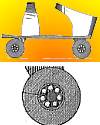 | On 9 Dec of a certain year, the first U.S. patent for ball-bearing roller skates was issued. This design allowed until then unseen speed. In what decade was this patent issued? |
Fast answers for the previous newsletter for December 8: muskets • photosynthesis • George Boole, Boolean algebra • Roentgenium • President Dwight Eisenhower.
 If you enjoy this newsletter, the website, or wish to offer encouragement or ideas, please send feedback by using your mail reader Reply button.
If you enjoy this newsletter, the website, or wish to offer encouragement or ideas, please send feedback by using your mail reader Reply button. Your click on a Facebook, StumbleUpon, or other social button on the site webpages is also a welcome sign of appreciation. Thank you for using them.
© This newsletter is copyright 2019 by todayinsci.com. Please respect the Webmaster's wishes and do not put copies online of the Newsletter — or any Today in Science History webpage. (If you already have done so, please remove them. Thank you.) Offline use in education is encouraged such as a printout on a bulletin board, or projected for classroom viewing. Online, descriptive links to our pages are welcomed, as these will provide a reader with the most recent revisions, additions and/or corrections of a webpage. For any other copyright questions, please contact the Webmaster by using your mail reader Reply button.
--
If you do not want to receive any more newsletters, Unsubscribe
To update your preferences and to unsubscribe visit this link
Executive Real Estate Business Class
-
"It was like a man with wings. It wasn't like anything you'd see on TV or in a monster movie." ...
About the publisher
Search This Blog
Blog Archive
-
▼
2020
(1542)
-
▼
December
(121)
- On This Day for December 31 - Ottawa made capital ...
- Newsletter for Thursday 31 December.
- December 31: The Battle of Quebec, a Rainy Day in ...
- All That's Interesting's 10 Most Popular Stories O...
- On This Day for December 30 - Union of Soviet Soci...
- Newsletter for Wednesday 30 December.
- December 30: Creation of the USSR, the All India M...
- Know Better in 2021
- On This Day for December 29 - U.S. annexation of T...
- Newsletter for Tuesday 29 December.
- December 29: On This Day in History
- The Best of HISTORY This Week
- The 10 Best History Uncovered Articles Of 2020
- On This Day for December 28 - Westminster Abbey op...
- Newsletter for Monday 28 December.
- December 28: Galileo Observes Neptune, Harriet Tub...
- The death of Thomas Becket | The history of New Year
- On This Day for December 27 - Dutch transfer of In...
- Newsletter for Sunday 27 December.
- December 27: On This Day in History
- On This Day for December 26 - Indian Ocean tsunami...
- Newsletter for Saturday 26 December.
- December 26: 1st Spanish Settlement in the New Wor...
- The Anti-Santa Who Takes Naughty Kids To Hell, The...
- On This Day for December 25 - Christmas celebrated...
- Newsletter for Friday 25 December.
- December 25: Andrew Johnson's Christmas Pardon, Ce...
- On This Day for December 24 - Treaty of Ghent, Joh...
- Newsletter for Thursday 24 December.
- December 24: The Treaty of Ghent, Author Stephenie...
- Demystified Video: Why Is Christmas in December?
- On This Day for December 23 - Aleksander Kwaśniews...
- December 23: Van Gogh's Madness, the Partition of ...
- On This Day for December 22 - Alfred Dreyfus sente...
- Newsletter for Tuesday 22 December.
- December 22: An Impenetrable Fortress Falls, the 1...
- On This Day for December 21 - Radium discovered by...
- December 21: The Soviet Union Ends, Life in the Tr...
- A history of Christmas – from Oliver Cromwell to V...
- On This Day for December 20 - Macau made an admini...
- Newsletter for Sunday 20 December.
- December 20: US Buys Louisiana, the Viet Cong and ...
- On This Day for December 19 - Articles of impeachm...
- Newsletter for Saturday 19 December.
- December 19: On This Day in History
- The Soviet Executioner Who Killed 7,000 Poles One ...
- On This Day for December 18 - Slavery abolished in...
- Newsletter for Friday 18 December.
- December 18: The Yuan Dynasty Begins, Nuclear Powe...
- The perfect gifts for the curious kids in your lives!
- On This Day for December 17 - Flight of the Wright...
- Newsletter for Thursday 17 December.
- December 17: Tamerlane Sacks Delhi, the Wright Bro...
- Demystified: Do We Really Use Only 10 Percent of O...
- On This Day for December 16 - Boston Tea Party, Ja...
- Newsletter for Wednesday 16 December.
- December 16: A Boston Tea Party, the Battle of the...
- Haunting Kennedy Assassination Photos That Most Pe...
- On This Day for December 15 - Premiere of Gone wit...
- Newsletter for Tuesday 15 December.
- December 15: Vandals, Mongols and the US Bill of R...
- On This Day for December 14 - Roald Amundsen's arr...
- Newsletter for Monday 14 December.
- December 14: Amundsen and Scott's Epic Race to the...
- On This Day for December 13 - New Zealand sighted,...
- Newsletter for Sunday 13 December.
- On This Day for December 12 - U.S. Supreme Court d...
- December 12: A Generous Manhattan Gift, Bush v. Go...
- How eels powered the medieval economy | The histor...
- 55 Of History's Creepiest Pictures And Their Distu...
- On This Day for December 11 - Abdication of King E...
- Newsletter for Friday 11 December.
- December 11: The Mayflower Pilgrims, an Abdication...
- UPDATED: Britannica Year in Review: Story of the Year
- Britannica Year in Review: Story of the Year
- On This Day for December 10 - Encyclopædia Britann...
- Newsletter for Thursday 10 December.
- December 10: Spanish-American War, Edward VIII and...
- Laurence Fishburne Hosts a New HISTORY Digital Series
- Demystified: What's the Difference Between Whiskey...
- On This Day for December 9 - Lech Wałęsa elected p...
- Newsletter for Wednesday 9 December.
- December 9: Belisarius Enters Rome, Lech Wałęsa El...
- What will you discover this Thursday?
- On This Day for December 8 - John Lennon fatally s...
- Newsletter for Tuesday 8 December.
- December 8: Lincoln's Amnesty Proclamation, the US...
- On This Day for December 7 - Pearl Harbor attack, ...
- Newsletter for Monday 7 December.
- December 7: Birth of Plastics, Infamy in Pearl Har...
- History books of the year | Historical board games...
- On This Day for December 6 - Irish Free State esta...
- Newsletter for Sunday 6 December.
- December 6: Mongols Destroy Kiev, Slavery Abolishe...
- On This Day for December 5 - Witchcraft condemned ...
- Newsletter for Saturday 5 December.
- December 5: Gold Rush in California, End of Prohib...
- HNN Newsletter: You are now unsubscribed
- 10 Medieval Execution Methods That Are The Definit...
- On This Day for December 4 - Ivan the Terrible pro...
-
▼
December
(121)
-
Blogroll
-
About
HistoryFact










0 comments:
Post a Comment